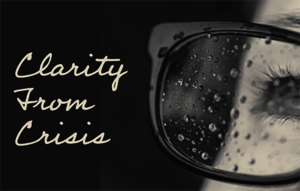 During the height of crisis, it is hard finding a way forward, as if we are looking through a darkened window. Most people are ready for 2020 to be over. It has been a hard year for most everyone. The COVID-19 pandemic has brought the world to its knees in many ways, at least for a time. It has been challenging to focus on much long-term planning, as we are all just trying to stay healthy both physically and fiscally.
During the height of crisis, it is hard finding a way forward, as if we are looking through a darkened window. Most people are ready for 2020 to be over. It has been a hard year for most everyone. The COVID-19 pandemic has brought the world to its knees in many ways, at least for a time. It has been challenging to focus on much long-term planning, as we are all just trying to stay healthy both physically and fiscally.
These are the two areas most widely impacted by this global crisis. Whatever your views on the pandemic, there is no denying it has upended our normalcy in numerous ways. This pandemic is the latest large-scale reminder that our future is unknown (by us) and we actually control little. But there is One who knows our future and is not surprised by today and tomorrow’s challenges. He’s got this!
With that assurance, let us not lose hope, but also not become complacent. We do have some level of control over many details of our lives, and it is in these details we can become more resilient when the next crisis hits.
A few years ago, Rahm Emanuel made the statement, “You never want a serious crisis to go to waste.” While I thought the statement was in poor taste regarding how the phrase was being used, there is some value in it given the recent challenges we have faced. As we consider how this pandemic impacted our lives, we will do ourselves and our communities a great disservice if we do not learn from the challenges it presented.
We must not generalize this review either, but look for specific pain points, or even areas of success in your own life during the pandemic. This reflection will reveal areas where we need improvement and the areas upon which we have a good grasp. What could I have done better to improve my family’s comfort or resiliency to face this situation or others that will come? An intentional, honest, and specific review will allow us to find a better way forward.
Once we identify the lessons we need to learn, it is time to put a plan into place to address those areas. For many of us, those lessons involve improving our physical health, staying well stocked on supplies, and improving our financial well-being. We may need to ensure we eat a healthy, balanced diet and are being physically active. It may involve ensuring we have adequate supplies on hand or have alternate channels of resources planned when supply channels are limited. It could be ensuring your family has multiple income streams in case of job loss. Or surplus savings/investments that are accessible when your primary income source is reduced.
It does not help to acknowledge these potential pain points if we do not respond with plans to meet those areas of need during future crisis. No one wants to find himself in these kinds of situations, and many times these crisis situations are beyond our control. But, with planning, and maybe even short-term sacrifices, we can become more self-sufficient in times of need. With hard work and wisdom, we can narrow the gap between challenge and triumph.
Even though we may still be in a fog from the turmoil of this past year, do not lose hope. We must learn from the challenges we face, and then apply these lessons learned to bolster our success during the challenges sure to come. Let us not waste this opportunity to learn, to grow, and to serve. It will give us clarity from crisis.
